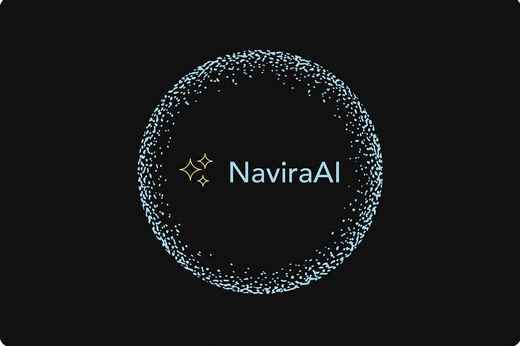Reflecting on my AI Journey
Reflecting on my 2 weeks of AI learning. I’ve captured some of my experiences, lessons, and challenges in this blog—written for people just like me: curious, non-technical, and ready to explore.
Srinath Srinivasan(Sri)
5/25/20254 min read
My AI Journey: A Sales Vet Learns to Talk to Machines
I’ve spent almost 2 decades in Sales, so diving into AI tools this late in the game has been humbling and exciting. I’m not a coder or a techie at all – I run on coffee and curiosity. Recently I decided to teach myself about AI, and I’m sharing this honest story from the perspective of a non-technical person. I’ll talk about the good, the hard parts, and what I’ve learned so far.
Key Positive Experiences
Amazed by the power of AI: When I first tried ChatGPT and other tools, I was blown away. It’s really impressive how much they can do. Here was a chatbot giving detailed answers to questions I never expected it to understand. Every day I discover a new trick these tools can do, and it feels like having a very smart (and patient) assistant.
Prompting is a superpower: I learned quickly that how you ask matters a lot. Being specific really pays off. The more specific your prompt is, the more likely it is that you will receive a relevant and informative response. Writing good prompts started feeling like a new skill—almost like learning a new language. Some days I practice just by chatting with ChatGPT about things I care about - mostly stock market! 🙂. It’s become a fun game: I tweak my prompt, see what answer comes back, and learn each time.
Excited to explore new tools: I’ve jumped in to try everything from ChatGPT to Gemini to Claude to Grok and Perplexity. Ask the same question to each AI tool and each one has its own style and exploring them feels like going on a mini adventure. Every new feature or tool feels like a new toy to explore.
Key Learnings
Use specific prompts: Hands down, specificity is key. I’ve seen this advice everywhere. The more details and context I give, the better the answers. For example, instead of asking “How to increase sales?”, try “What are five specific tactics a salesperson can use to follow up with leads more effectively?” The difference is night and day.
Different tools have different styles: I noticed that ChatGPT, Gemini, Claude, and others each give answers in their own way. Claude gave very detailed breakdowns of answers, ChatGPT kept things a bit shorter and more straightforward, and Google’s Gemini gave concise answers. It taught me to pick the tool that fits my needs: want detail and reasoning? Try Claude or ChatGPT. Want a quick summary? Maybe Gemini.
AI can be wrong or outdated: This surprised me. These tools can sound super confident, but they sometimes make things up or give old info. I learned to treat their answers as a draft. Because of that, I’ve started double-checking anything important.
Experimentation is the best teacher: The biggest lesson is to just play with it. Reading about AI is one thing, but I learn fastest by doing. I make up silly or serious prompts, try them in different tools, and see what happens. Each “failure” is really a lesson. For instance, after a bad answer I figured out I needed to be clearer. After a great answer, I learned what kind of prompt got me there. Slowly, I’m building an intuition for what works.
Challenges
Creating images is tricky: I tried AI art tools for the first time and, wow, did they test my patience. I had a clear vision in my head, but getting the tool to match it took so many tweaks. Sometimes I’d write a description for a logo or illustration, and the result would be off. I learned to tinker: change one word, adjust the style, rerun. It’s a lot of trial and error, and that can be frustrating.
Which tool should I use? Feels like a maze: Which AI tool is best for what and which model to use based on your task. At first I wondered, “Should I be using ChatGPT or try Gemini? What about Claude or Perplexity for this one?” It’s easy to get lost. I’ve started focusing on a couple of tools I like and setting aside the fear of missing out on every new feature.
AI moves really fast: I’ve been in sales long enough to know that markets change, but tech feels like it’s on warp speed. I’ve set up news alerts and follow a couple of influencers. Still, it’s intimidating. Something I learned last week might already have an improved or changed version now. It means I have to keep learning continually. Sometimes I feel overwhelmed trying to keep up. But I remind myself it’s okay to learn at my own pace.
Conclusion
It's been 2 weeks since I have been in an “Immersive” learning mode. AI might sound scary for several people, but I really believe it’s our future – and that it’s accessible even for non-technical people. I’m still that same sales guy who thought tech was beyond him.
Begin with what you have. You’ll improve with time. Stop overthinking the “right” way to use AI and try it out. People say the same thing over and over - you learn by doing, not by just reading about it. From what I see, even experts began exactly where I am now.
AI is here to stay, and I’m excited to be on this journey. With a bit of courage and lots of trial and error, anyone (even a 20+ year sales veteran like me) can start turning AI from a mystery into a helpful co-worker. It’s a learning curve, but one step at a time, it really does get easier and its fun!
Excited at the possibilities ahead!
